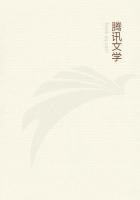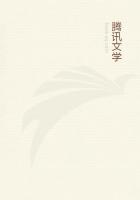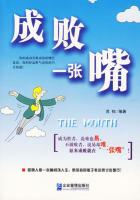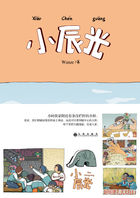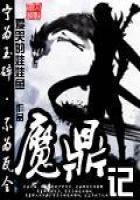In regard to the question started in the next age by Reid, as to whether we perceive by the senses the external object, or an idea of it, it is certain that he accepts the view and the language of the great body of philosophers prior to his time, and he speaks of our perceiving by ideas " as images of something external."Formal logic has been taught, I believe, in Glasgow University from its establishment in 1451 to this present time.Hutcheson has a "Logical Compendium" which was used as a text-book in Glasgow and elsewhere.In this treatise, after a meagre dissertation on the rise of philosophy, he defines logic as " the art of guiding the mind in the knowledge of things; adding, that it may also be considered a science, and that others define it " the art of discovering and declaring truth." These definitions will be regarded as too loose and vague by the rigid logicians of our time.In treating of the concept, notion, or idea, he represents ideas as being divided into sensations, imaginations, and pure intellections, -- a theory adopted by Gassendi, and favorably received by not a few for an age or two after the time of Descartes and Gassendi, as seeming to reconcile these two eminent men.Hutcheson had previously represented all sensation as external and internal, and declared, with Locke, that all our ideas arise either from the external sense or {72} from reflection.The intellections he defines as " any ideas not reached or comprehended by any bodily sense; " they are chiefly "suggested by the internal sense, and include our actions, passions, judgments, doubts, and the like, and also abstract ideas." There is an incongruous mixture here of the Lockian with an older theory.The ideas derived from reflection, which are all singular and concrete, should not be put in the same class with those abstract and general ideas which are formed by the intellect from the materials got from sensation and reflection, and, we may add, from those furnished by the faculties of the mind in their exercise, such as those we have of the beautiful and the good.This confusion long lingered in the Scottish psychology from which it has scarcely yet been expelled.
Hutcheson represents complex (concrete would be the better phrase) ideas as having comprehension, and universal ideas as having extension; and announces the rule that extension and comprehension stand to each other in a reverse order.He distinguishes between a logical whole, which is a universal in respect of its species, which are spread out in division; and a metaphysical whole, which is the comprehension of a complex idea, and is declared by definition.He distinguishes between noetic and dianoetic judgment, in the former of which the two ideas are compared immediately (<proxime>), and in the latter by means of a third.The subject, predicate, and copula are said to be in the proposition either expressed or suppressed and involved.
He does give the dictum of Aristotle as the regulating principle of reasoning, but derives all the force of syllogism from these three axioms, in which, we think, there is a very unsatisfactory vagueness in the phrase <agree>: "(1) Things which agree in one third agree with one another;(2) Things of which the one agrees and the other does not agree with one and the same third do not agree with one another; (3) Things which agree in no third do not agree with each other; (4) Things which disagree in no third do not disagree among them selves.Hence are deduced the general rules of syllogisms." This "Compend" continued to be printed and used down to at least the close of the third quarter of the eighteenth century.One is inclined to think that these phrases and distinctions must have been introduced to the notice, and inscribed on the {73} memory, of William Hamilton during his collegiate life at Glasgow, and that they may have helped as they recurred, consciously or unconsciously, to suggest to him certain of the essential principles of the "New Analytic of Logical Forms."He has a separate treatise on metaphysics ("Metaphysical Synopsis," 1742) which he divides into ontology, or the science of being, and pneumatology, or the science of spirit (divine and human)." It appears from his treatise on metaphysics," says his admiring biographer, "that he was well acquainted with the logomachies, meaningless questions, and trivial debates of the old scholastics, which had thrown a thick darkness on that part of philosophy: he has set that branch of knowledge in a clear light, and rendered it instructive and entertaining."The sneer at the scholastics is a symptom of the age.The alleged " meaningless questions " are still put, and must be put, by profound thinkers who would go down to the foundations of truth.Even Hutcheson was obliged to put them and to answer them.The answers which he gives, if not so profound in fact or in appearance as those given by the ancient Greek philosophers, by the scholastics, or by Descartes and Leibnitz, are always clear and sensible, and often just and satisfactory.He discusses, and this by no means in a superficial manner, topics which the Scottish metaphysicians between him and Hamilton carefully avoided.
His scholastic training at Killyleagh, and the spirit of the older teaching, had still a hold upon him for good.
He treats of being, declaring it to be undefinable, and showing that it involves existence and essence, and that potency and action are the principles of being.He refers the conviction of our identity of being to consciousness.As to the much agitated question of the principle of individuation he comes to the sound conclusion that it is to be ascribed to the nature of the thing existing.

